El Paso Elsewhere (Steam, Steam Deck) Review
Romantic Oblivion Soaked in Psychological Trauma
Now and again a game completely enthralls me; El Paso Elsewhere is one of those captivating games. It is clear from the onset that this title harbors the souls of those who worked on it, injecting every inch and moment with their personality. While the game is primarily an homage to classic action shooter, Max Payne, the story rings far louder and presents a psychological deep dive that cuts a scar into the minds of players. I finished El Paso Elsewhere for the first time in December, spending an entire weekend pushing through menacing werewolves and knocking out geometrical nightmare angels with pinpoint accuracy. Despite my overwhelming enjoyment, El Paso Elsewhere has room for improvement, chiefly within its pacing and length. Still, there are so many incredible moments that it is one of the most recommendable indie titles I’ve had the pleasure of playing.
Developed by Strange Scaffold, a team behind several smaller games with focused mechanic sets, El Paso Elsewhere is a game I discovered through the social media of Creative Director Xalavier Nelson Jr. As a frequent poster to bother Twitter and TikTok, Xalavier has been championing effective game development with flexible teams in an effort to establish a formula for a healthier games industry. His videos often point out the ways their teams are thriving, often sharing tips on how to avoid burnout, and celebrating each small victory with an infectious gusto. There’s a palpable value to how Xalavier talks about his team and his games, making their upcoming projects, Life Eater – an urban fantasy kidnapping simulator, Project Beast, and whatever else this team is cooking up is now of immediate interest to me.
This is the foundation that makes El Paso Elsewhere so interesting to me; it is a properly budgeted, smartly designed, focused experience that embodies everything that independent game development stands for.
The basic premise of El Paso Elsewhere is that it’s a slickly stylized, retro-inspired third-person shooter with various weapons and a slow-down mechanic. It’s very similar to the first Max Payne, even echoing the noir tones of the cutscenes. The painful narrative revolves around James Savage, a drug-addled vampire hunter forced to turn his aim towards an old flame, the mind-shatteringly powerful Draculae. Determined to wipe away the world in an ocean of monsters, ghouls, and beasts, Draculae retreats into the cavernous depths beneath a motel in Texas. As one of the few people that understands her, Savage gathers his weapons and a mountain of narcotics to fuel his swan dive into a rift of despair and constant psychic rending.
While the visuals and action all ooze style, El Paso Elsewhere gripped me in its use of an incredible hip-hop album dripping with venom, anger at systems of power, self-loathing, and ultimately overcoming these demons. Written by RJ Lake and Xalavier — with most of the vocals performed by Xalavier, what can’t he do?! — and additional voices by Rachel Lake, the hip-hop portions are heartfelt and transcend beyond the game to be enjoyable on its own. Many of the tracks almost feel like religious mantras, hammering in the emotions of the main character with every emphatic line. When the first vocal track kicked in, I committed to finishing El Paso Elsewhere then and there. Of course, this pairs perfectly with the atmospheric cornucopia that the rest of the OST features.
From the game’s music to the beautifully tragic voice delivery, El Paso Elsewhere is an auditorial ascendency.
With the core goal of taking down Draculae and going floor by floor through a dungeon of floating churches and blood-stained motel rooms, Savage’s journey is one given context by bookending every few levels with these introspective cutscenes that steadily unveil the toxic nature of the relationship between a mortal and an immortal creature. Power dynamics, domestic and substance abuse all paint a deeply sad end to a relationship.
To overcome his personal demons and strike down the shadows surrounding her, Savage uses an array of shotguns, uzis, holy-water-filled Molotov cocktails, and a staggering amount of pills. Earning new weapons and learning the ins and outs of the various monsters and what they’re weak to is a blast. In a way, El Paso Elsewhere shares a lot in common with classic corridor shooters such as Quake and DOOM, utilizing various keys and maze-like pathways. Savage runs around a nightmare landscape, shooting anything in his path and breaking any structure that might crumble to his emotions, all the while saving people — which I took to be manifestations of the good Savage has the potential for and the people he may have saved over the years by hunting monsters.
There are layers to the action and narrative. The game even messes with the player through some of the darkest content being accentuated with a razor-sharp joke. Learning that Savage had to pay for ice cream on a day where there was plentiful kindness by a recovery leader or his surprise at seeing a werewolf in a bathroom adds to the endearment that builds over time. By the end, my heart ached for these two characters, hurtling themselves toward the sun only to burn up in its rays.
However, not all that glitters is gold, as the core mechanics rarely deviate, making the later portion of the game a chore to get through. It may have been an intentional framework meant to symbolize the tedium Savage experiences day-to-day, all while suffering from addiction and emotional distress. Yet, it wore me down to the point that I almost gave up.
Truth be told by the time I reached the 50th floor, I felt like there was a lot of extra fat that could have been trimmed from this experience. It’s a common criticism, but I would have felt far more satisfied with a tighter amount of gameplay. Another area where I felt some friction is the game’s slow-down meter, which I never really had enough of and felt like it was a struggle to build back up. Oddly enough, the game’s accessibility features didn’t have an option for unlimited slow-mo or a slider to give one more overall. This is something I also felt in Trepang2; a little more generosity with the game’s core – and coolest – mechanic would go a long way. Thankfully, there is an infinite health option, so when I felt I had gotten what I wanted out of the game’s action, I spent the rest of the game plowing toward the story’s bittersweet end.
Outside of that, El Paso Elsewhere is near-perfect, achieving so much with a reserved art direction and focused mechanics. It serves as an amazing reminder that the games that push the medium forward are coming more and more from independent teams.
I played nearly the entire experience through a Steam Deck and a pair of Steel Series headphones, creating a perfect way to completely bathe in the despair of James and Draculae’s romantic oblivion. I often play games to feel something, a connection to another player, the creators, or the game’s mood. El Paso Elsewhere is steeped in emotion like an aged tea that took generations to cultivate a particular flavor. It’s a game that’s simple in its ingredients, constructed in a way that elevates each piece into a timeless piece of art. There are lots of ways to interpret and connect the story, making for a fascinating discussion point both culturally and sociologically.
I implore our readers to give El Paso Elsewhere a try, or at the very least listen to the soundtrack.
I’ll be waiting on pins and needles for anything and everything Strange Scaffold has to offer in the future.
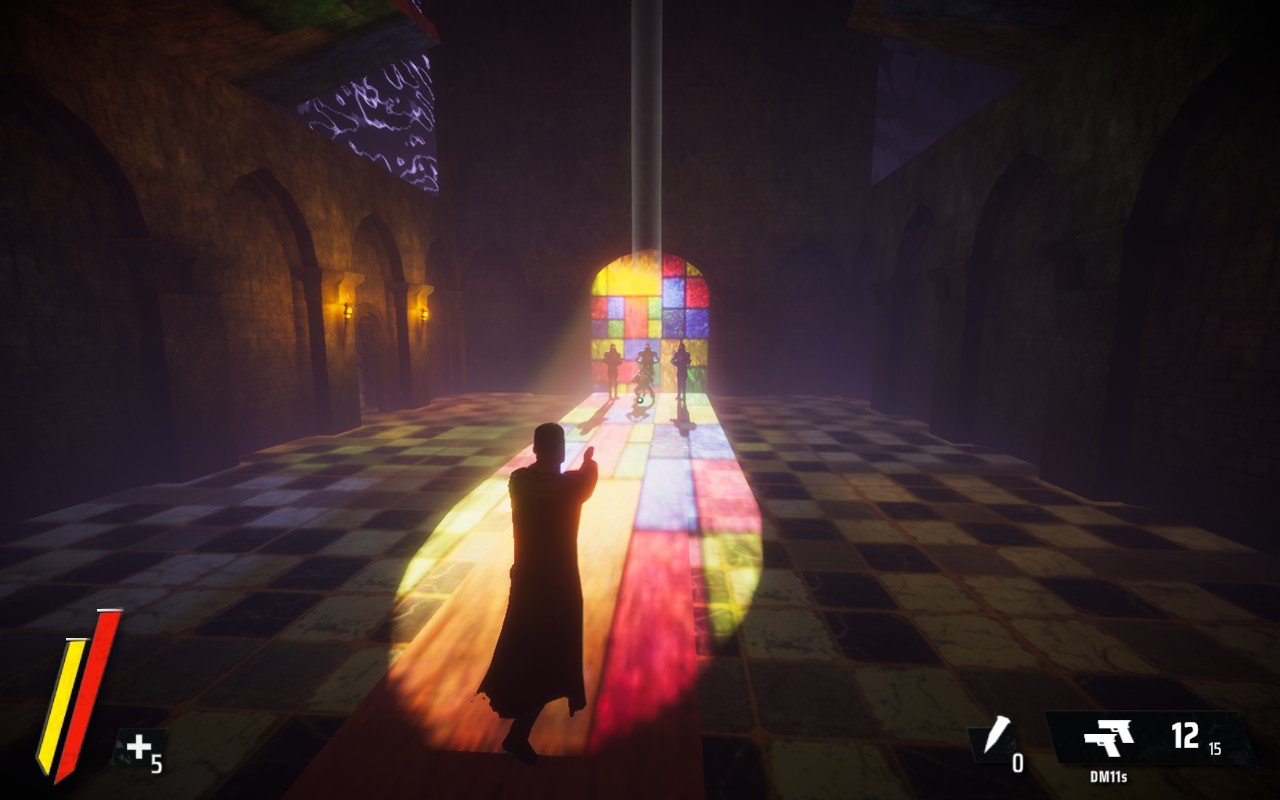
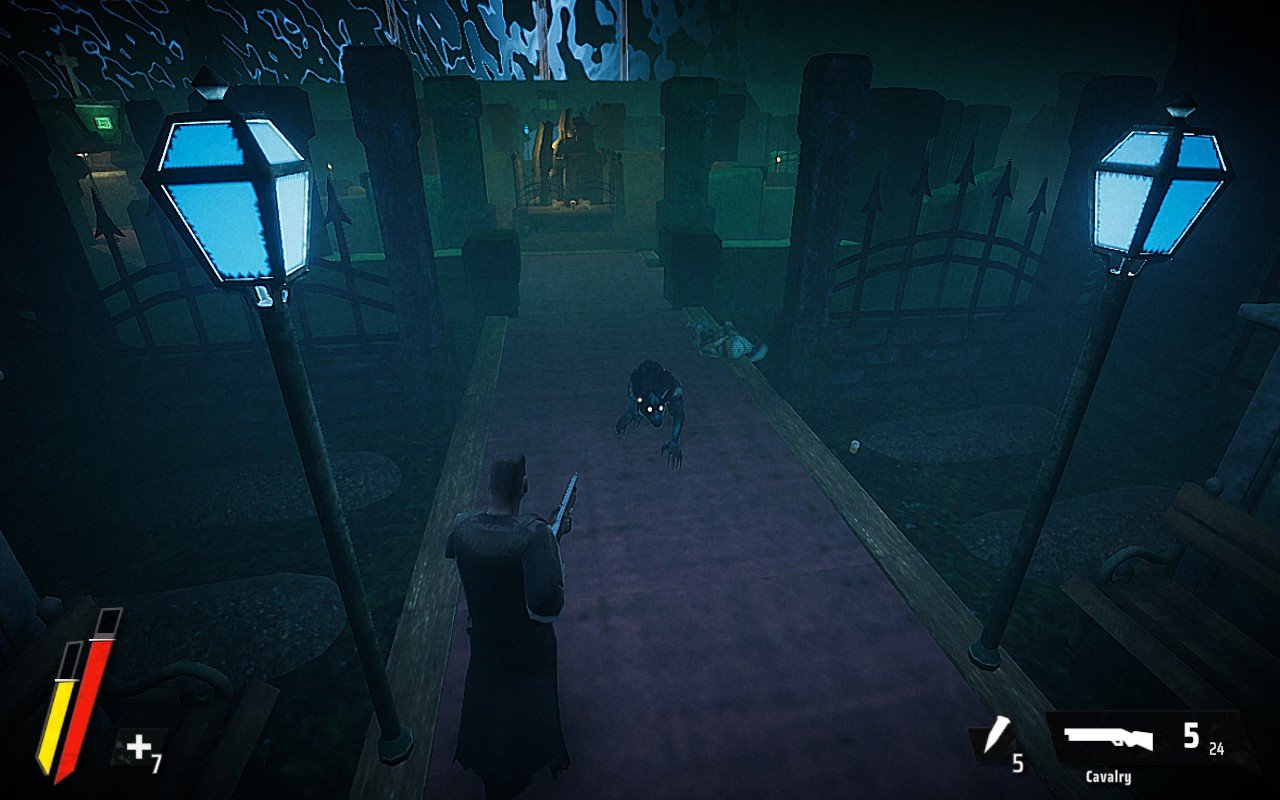
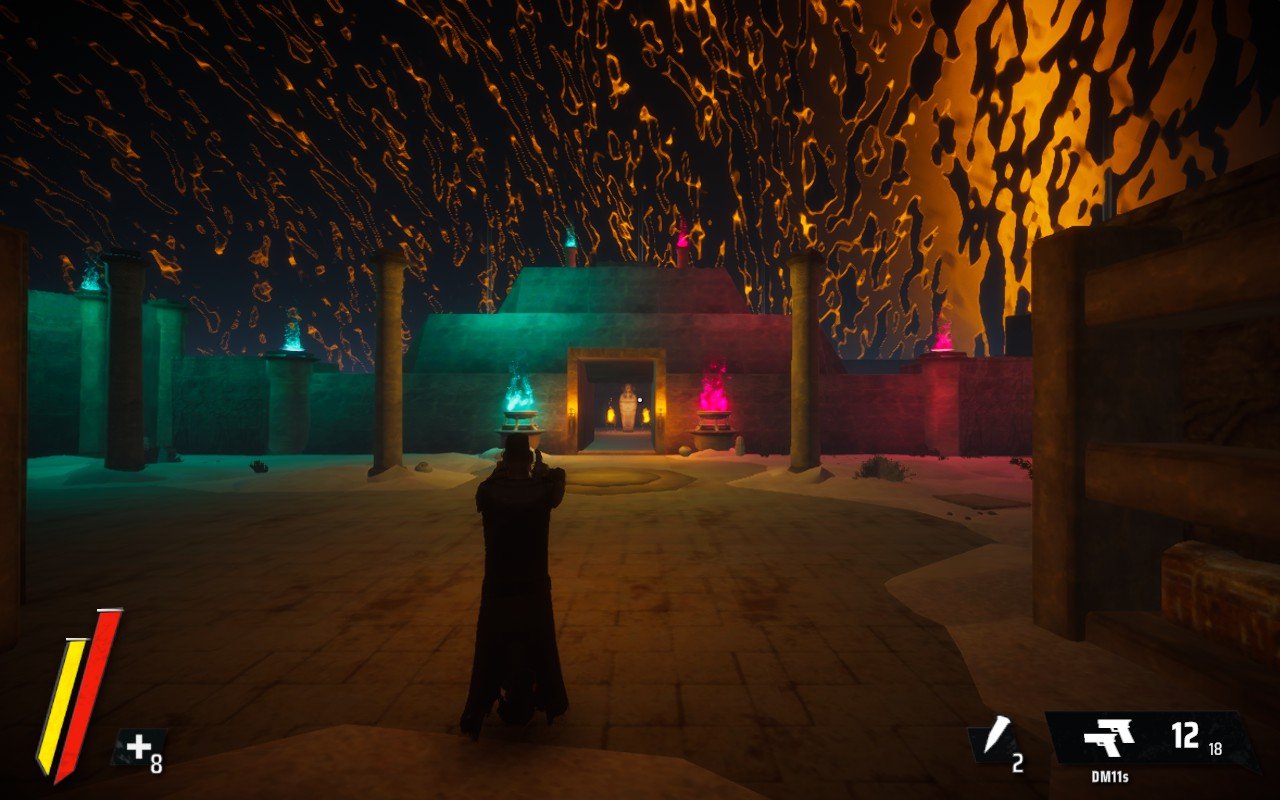

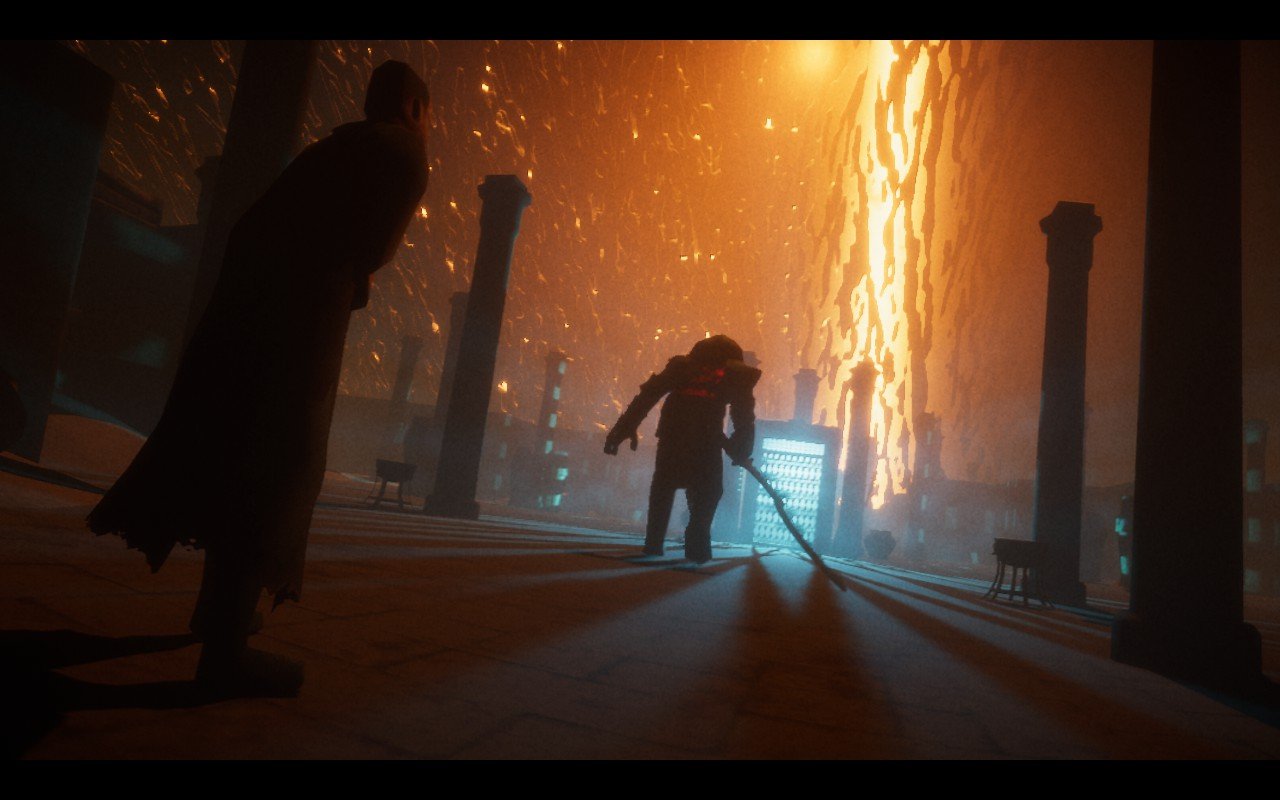
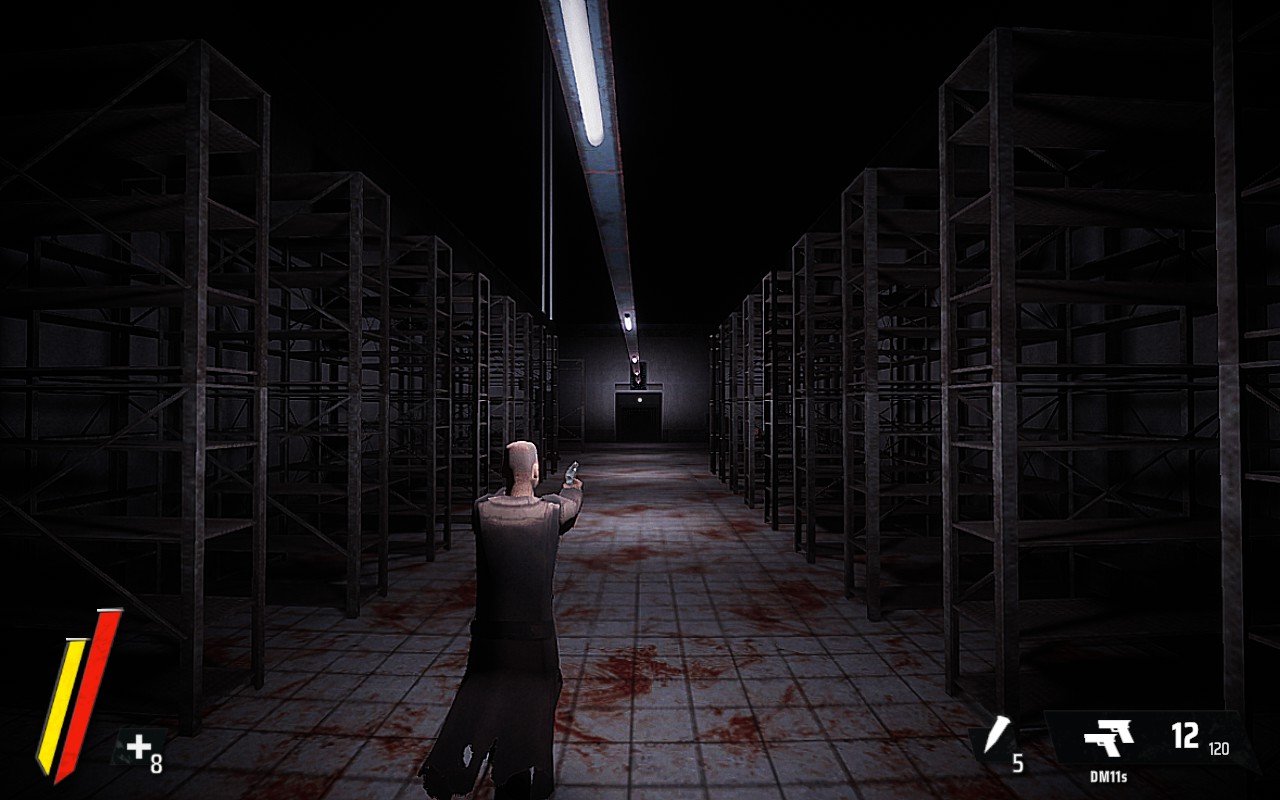
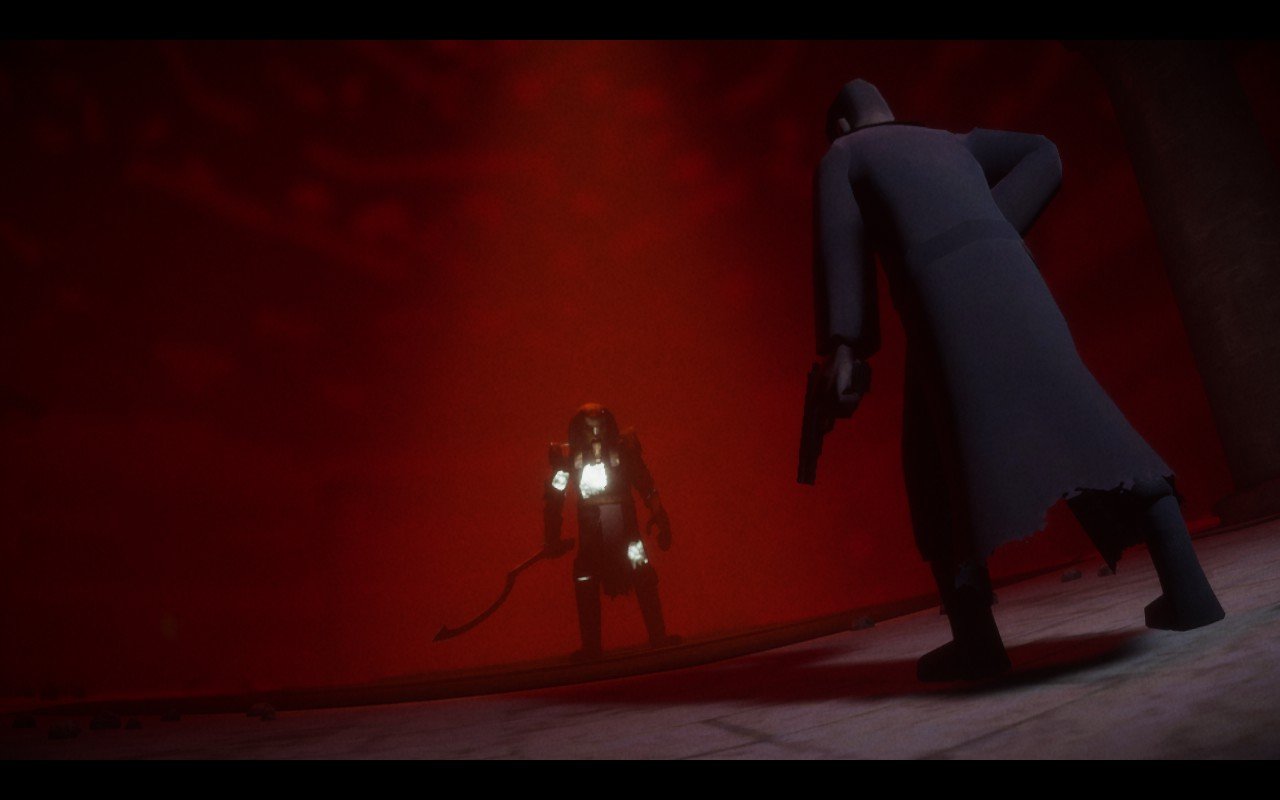
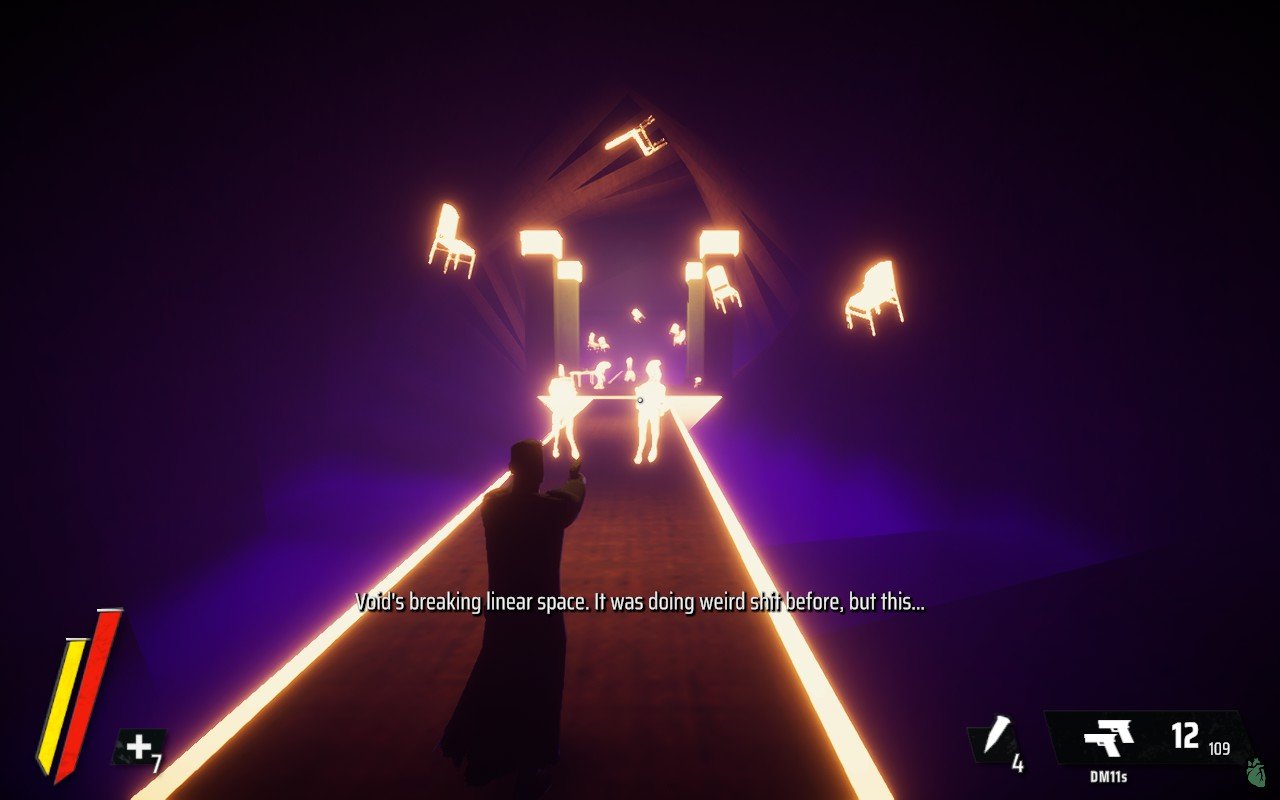
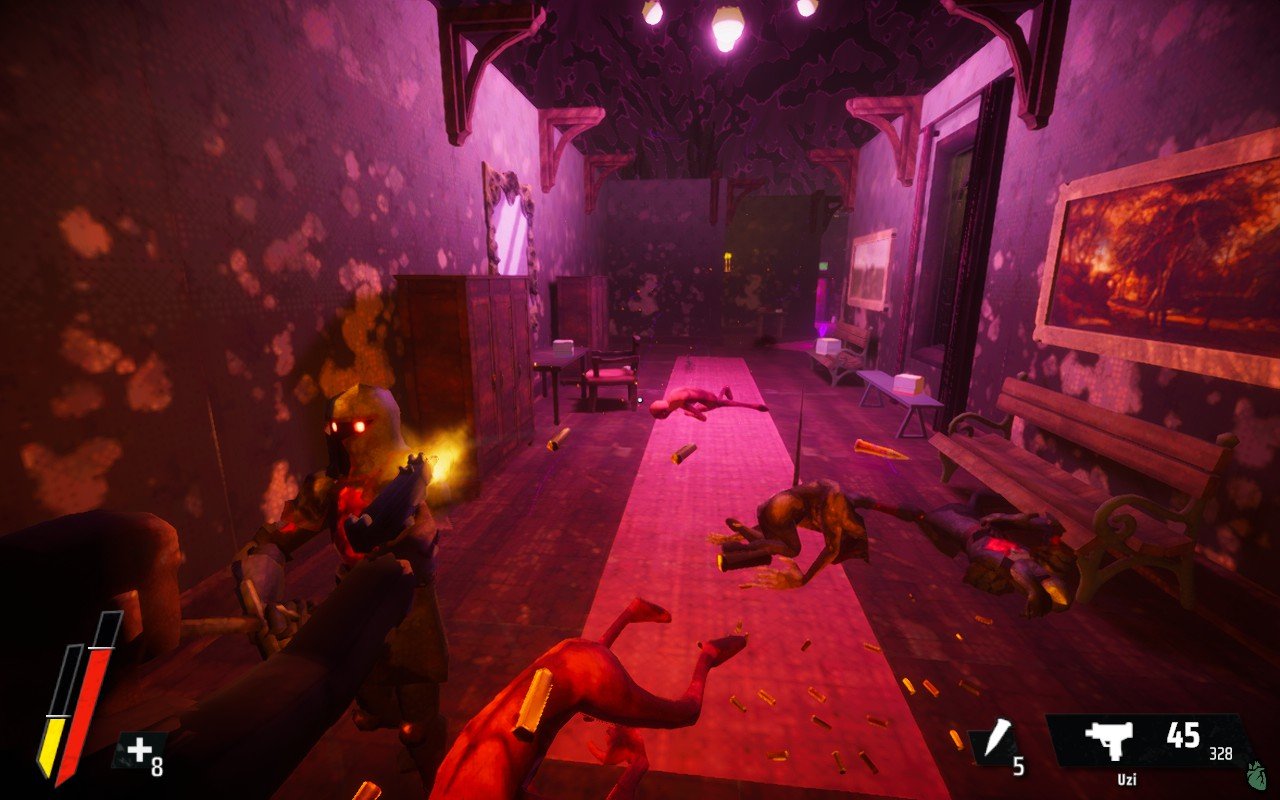
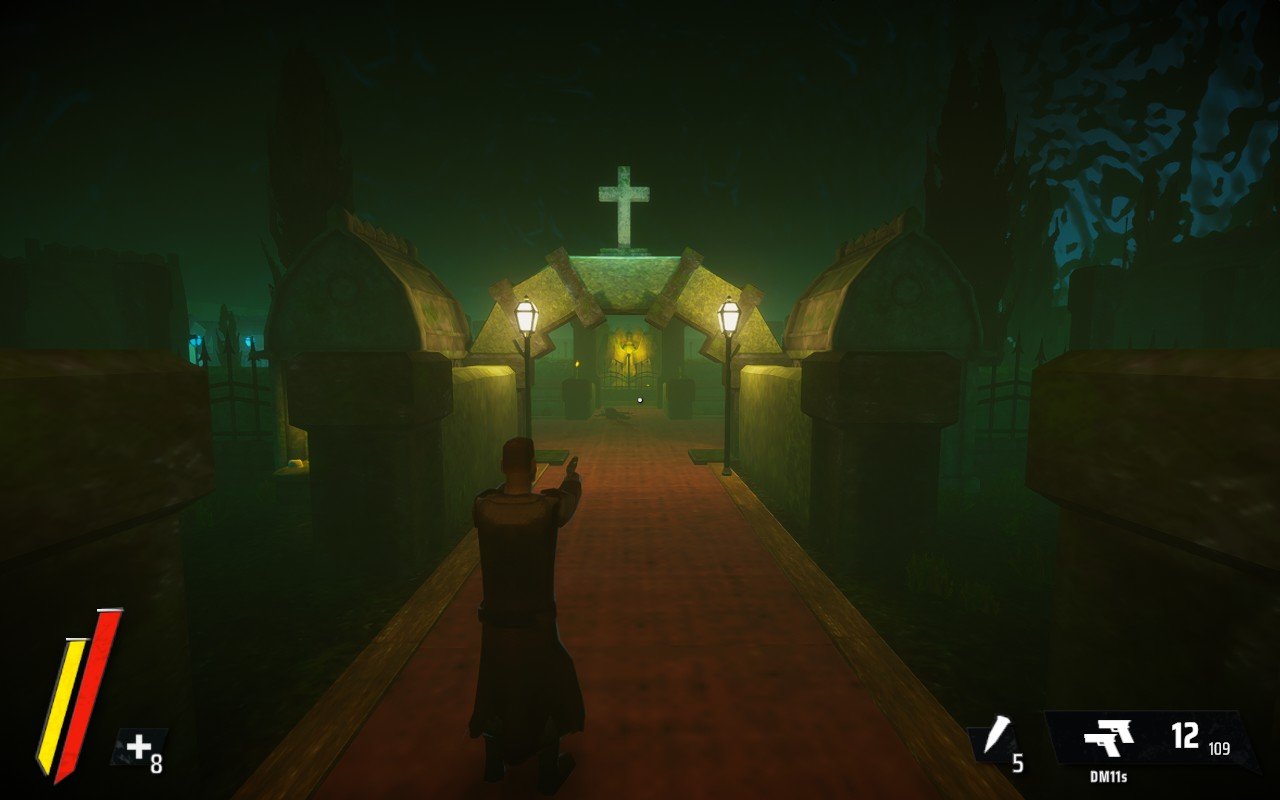

SCORES
GAMEPLAY - 7.5/10
VISUALS - 10/10
SOUND - 10/10
CONTROLS - 9/10
REPLAY VALUE - 8.5/10
OVERALL - 9/10
Learn more about El Paso Elsewhere on the Steam listing; the game is also available on Xbox Series X|S, Xbox One, and GOG. Screenshots were captured using the native features of the Steam Deck, though the featured image was taken on PC. A digital copy was purchased by the reviewer. There are no affiliate links in this article at this time.










Returning to their flagship franchise, Inti Creates has released Azure Striker Gunvolt 3. This review covers the Nintendo Switch version.